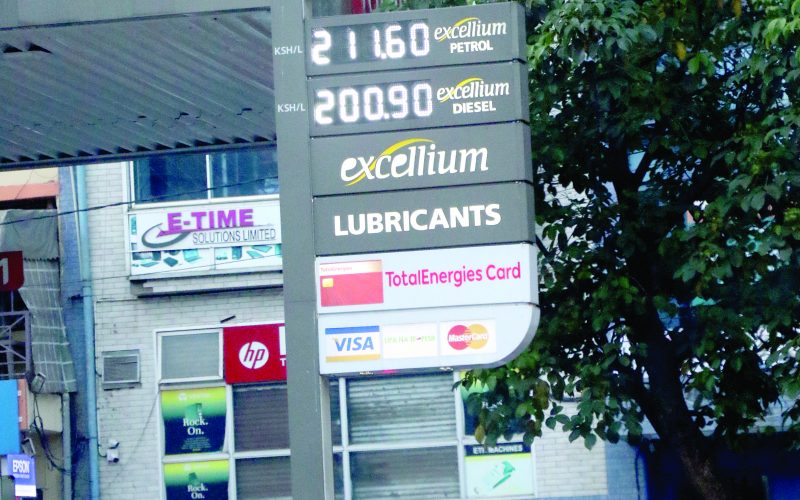‘Price of fuel could hit Ksh300 due to war between Israel and Hamas’ – CS Davis Chirchir

Energy Cabinet Secretary Davis Chirchir has warned that the retail price of a litre of fuel could hit Ksh300 in the next fuel price review by the Energy and Petroleum Regulatory Authority (EPRA).
Currently, a litre of super petrol is retailing at Ksh217.36 in Nairobi following a review of prices in October which saw the price increase by Ksh5.72. The prices of diesel and kerosene are Ksh205.47 and Ksh205.06 per litre respectively.
"We can't do much on the international prices of petroleum. Because of the Hamas and Israeli war, international prices could go up to USD150 (per barrel). That would literally mean our products going to a high of Ksh300 per litre at the pump. We hope it doesn't get there," Chirchir stated.
"We are working on it to make sure that though it is a global challenge we do obtain the best prices for our country." 
Chirchir, who was speaking before the National Dialogue Committee (NADCO), said that the government had slowed down the depreciation of the Kenyan Shilling against the US Dollar.
Chirchir says that through the government-to-government import credit scheme, the government has been able to stop the sucking out of over USD500 million every month which would have been used in the importation of fuel.
"In spite of the fact that it is still tight if we did not do the G-to-G, the situation would have been really dire today. We've been able to slow down the exiting of USD500 million every month from petroleum," he added.
International fuel prices
Currently, a barrel of crude oil is selling for between USD81 and USD87 in the international fuel market.
According to the World Bank's latest Commodity Markets Outlook report, fuel prices could surge to $157 per barrel.
"Although the global economy is in a much better position than it was in the 1970s to cope with a major oil-price shock, an escalation of the latest conflict in the Middle East—which comes on top of disruptions caused by the Russian invasion of Ukraine—could push global commodity markets into uncharted waters," World Bank stated.
However, according to the World Bank, the conflict’s effects on global commodity markets have been limited so far, with oil prices having risen by about 6 per cent since the start of the conflict. Prices of agricultural commodities, most metals, and other commodities have barely budged.
"In a “small disruption” scenario, the global oil supply would be reduced by 500,000 to 2 million barrels per day—roughly equivalent to the reduction seen during the Libyan civil war in 2011. Under this scenario, the oil price would initially increase between 3% and 13% relative to the average for the current quarter—-to a range of $93 to $102 a barrel," the World Bank added.
World Bank states that in a “medium disruption” scenario—roughly equivalent to the Iraq war in 2003—the global oil supply would be curtailed by 3 million to 5 million barrels per day. That would drive oil prices up by 21 per cent to 35 per cent initially—to between $109 and $121 a barrel.
In a “large disruption” scenario—comparable to the Arab oil embargo in 1973— the global oil supply would shrink by 6 million to 8 million barrels per day. That would drive prices up by 56 per cent to 75 per cent initially—to between $140 and $157 a barrel, World Bank says.







